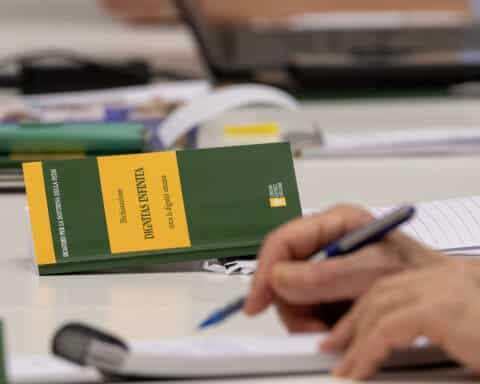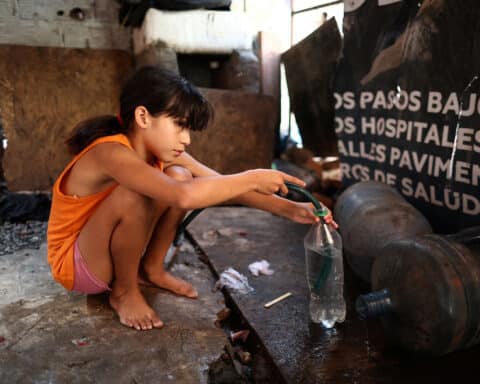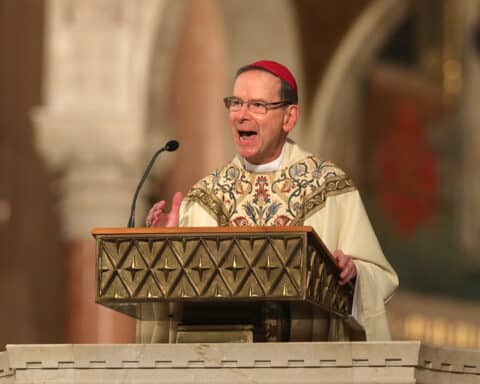For perhaps only the second time, I am (for the most part) encouraged by an official magisterial document released during the papacy of Pope Francis. Lest one think this is damning with faint praise, few documents include everything a theologian might want, or say things precisely the way that a particular theologian would wish. But the highly anticipated declaration from the Dicastery for the Doctrine of the Faith (DDF), Dignitatis Infinita (“Infinite Dignity”), is a strong, clear statement about various implications of the Catholic doctrine of human dignity. There is much to praise in Dignitatis Infinita and little to criticize in any strongly substantive way.
Of course, a significant number of Catholic cognoscenti stand ready to condemn everything that proceeds from the DDF or the pen of Pope Francis. They are to Pope Francis as Archie Bunker is to Mike Stivic: poised to condemn everything that comes from the Vatican. And if nothing is obviously problematic, they will scour the document until they find something to criticize.
To be sure, I have been critical of certain statements, letters and declarations. And, unfortunately, both the pope and DDF have given us good reason to have heartburn over some documents. But the prevailing hermeneutic of suspicion for everything Pope Francis says or endorses evinces a lack of charity that we must resist. A large number of Americans assume that every document produced in this papacy must be riddled with theological errors. They don’t read a new document to learn something, but rather to hunt for alleged illicit assertions. Where a statement is open to interpretation, it will always be read in the worst light, assuming a heretical meaning. This is a violation of charity.
Moreover, the strong presumption of theological or moral error prevents one from appreciating the good things that have come from Rome under Francis’ papacy. Again, I realize that we have been given ample reasons to read critically. But reading critically does not excuse us from reading charitably. And we should approach the text with an assumption of assent, rather than dissent. Of course, that assumption may be overcome. But this is the charitable — indeed the “Catholic” — way of reading a magisterial document. We should read with a presumption that any magisterial teaching is instructive and edifying; and ambiguous teaching should be read in the most positive light and with the most generous heart.
Can anything human be infinite?
Dignitatis Infinita is the latest example, beginning with the very title, of the hermeneutic of suspicion by which everything from Rome is read by some people. The anti-Francis Twitterati have dismissed the idea of humans having “infinite dignity” as sloppy reasoning at best and theological error at worst. Even if one attains everlasting life, it is not infinite, because it had a beginning. So how can the human person, created at a place in time, be infinite? Since the DDF cannot even get that right, the critics complain, why trust anything else it says?
I don’t disagree that the phrase “infinite dignity” is a bit startling. We don’t usually think of any list of human attributes as including “infinite” as an adjective. But in the light of Dignitatis Infinata’s excellent discussion of “ontological” dignity, the appellation of “infinite” dignity to the human person is on point.
The heart of the declaration is a discussion of the inalienable ontological dignity of the human person as an attribute of being created in the image and likeness of God. This is dignity that cannot be alienated, lost or compromised. It is not measured by any external attributes or lack thereof. It “belongs to the person as such simply because he or she exists and is willed, created, and loved by God,” the DDF explains. “Ontological dignity is indelible and remains valid beyond any circumstances.”
A participation in God’s dignity
Here is where I think we can appreciate why the DDF refers to human dignity as infinite. Every attribute of human being is a participation in the infinite life and mind of God — a sharing in God’s own being. Dignity — the heart of what makes humans human — participates in God’s infinite love and goodness in creating and redeeming man. In other words, human dignity is a participation in the infinite dignity of God.
We can also think about infinite dignity not as a literal description, but rather as an interpretive tool to emphasize and protect human dignity in all circumstances. Even if human dignity is not “infinite” by strict philosophical analysis, it is an indication that our respect for human dignity should never faint or fail. The second half of Dignitatis Infinita is a discussion of examples precisely of that failure, whether related to surrogacy, gender ideology, migration or capital punishment.
Christians are called to treat the human person as though his or her dignity is infinite. Put another way, we should see the dignity of the human person with infinite eyes. Because of dignity, our concern for the good of the person should be borderless and endless. The dignity of the human person summons us to infinite sympathy, compassion, hospitality and care. Whether “dignity” is technically infinite or not, we should treat one another as though it is.





